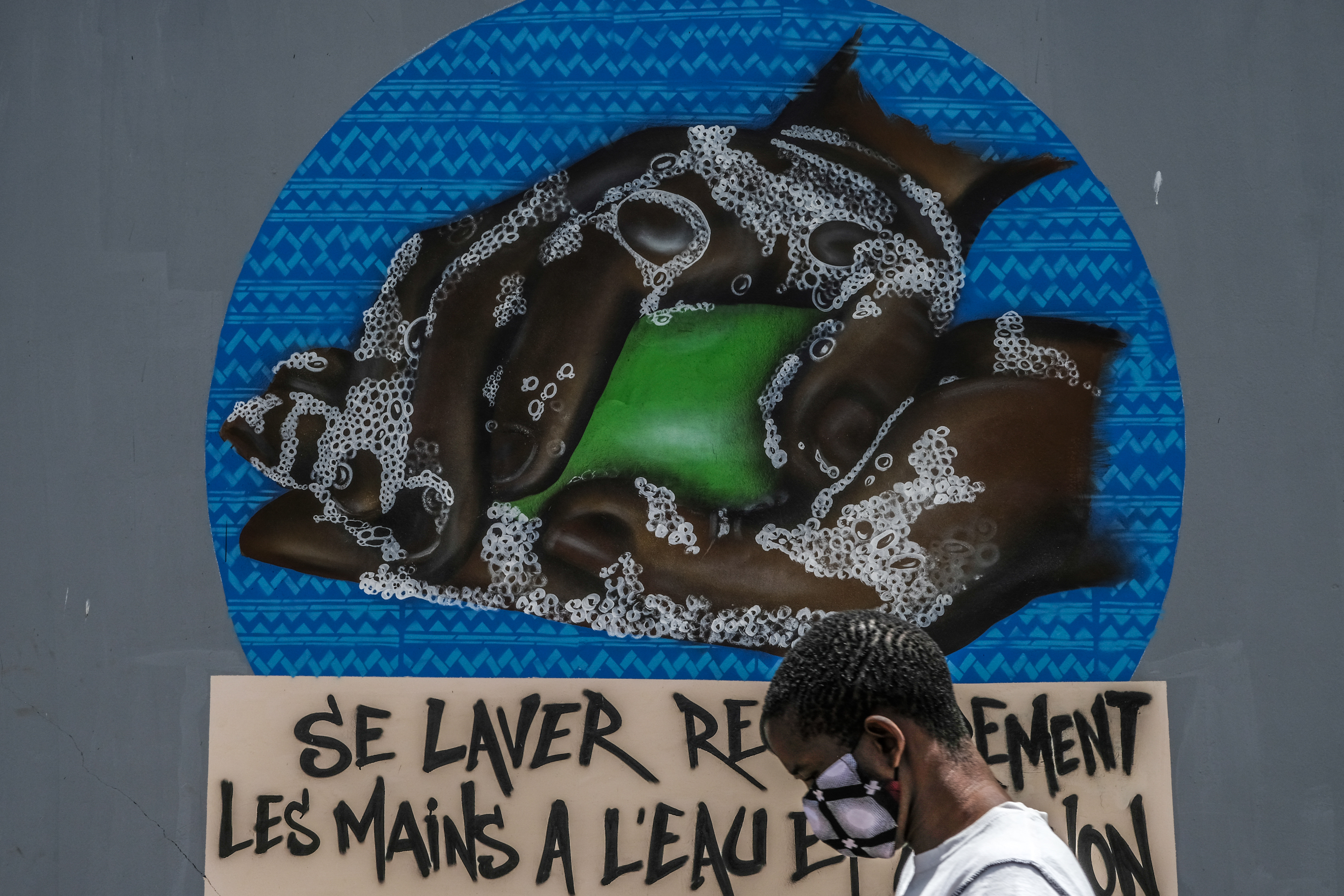COVID-19 in West Africa: Let's prepare for a long-distance run
- By Chibuzo Okonta
 0 Comment(s)
0 Comment(s) Print
Print E-mail China.org.cn, May 20, 2020
E-mail China.org.cn, May 20, 2020

It has been close to three months since the first case of COVID-19 was confirmed in Africa. The infection curves are today much flatter than those seen in France, Italy or the United States.
Contrary to what is happening elsewhere, and in contrast to what was predicted for us, the epidemic has not exploded, health systems are not overwhelmed and mortality is much lower than expected.
This is no reason to declare victory, but rather is a "heads-up" call to prepare for a long-distance run.
To survive this marathon, doctors, researchers and all others engaged in the response to the pandemic across Africa must take ownership of the narrative of the fight, and provide hard evidence to rationalize, and remove emotions from the ongoing debate.
Let's not allow panic, or the fanaticism of protecting our exceptional continent, to take over. Instead we need to prepare to offer cost-effective and efficient responses tailored to local conditions.
Re-anchoring the debate in local communities
On March 18, WHO Director General Dr Tedros Adhanom Ghebreyesus called on Africa to "wake up" and face the pandemic. This was followed by a succession of alarmist speeches about Africa's level of preparedness in the international media.
Yet, the COVID-19 response in Africa cannot be reduced to a single territory; after all, Africa consists of 54 states, each at a very different level of preparedness.
The new virus has claimed, and will undoubtedly continue to claim, lives in our countries. Paradoxically, our health systems – so often referred to as fragile – could end up being quite resilient in addressing this crisis.
Most of our health workers did their medical studies, and then practised the art of healing, in resource-deprived settings. They have learned and developed knowledge unfamiliar to their peers elsewhere. For example, basic preventive strategies are nothing new in our communities.
During an epidemic of Lassa fever (a regular occurrence in West Africa), physical distancing and isolation rules are the norm. We also know from experience that the right information – encouraged rather than imposed on people – will break the chain of infection quicker.
Here's the thing: There is no monopoly of knowledge! Our healthcare systems are certainly short of intensive care units and beds, as well as respirators. They certainly cannot claim sufficient numbers of qualified nursing staff to care for patients who will need oxygen. However, we have developed resilience, skills and knowledge through our experience gained in managing emergencies and epidemics.
While we acknowledge our fragility, it presents more opportunities for innovation. Our healthcare systems are aware of their limits and conscious of local capacities. However, in the face of such an emergency, we can increase our capacity response and perform a better triage. We have learned from unfortunate experiences that we cannot save everyone.
Working with people
One important thing to keep in mind is the imperative to work with people. They need to be part of the debate and the action at every stage, be it prevention, preparedness or care. It is not just a question of designing and implementing a response, through self-protective habits, for the middle and urban classes. Decisions must be made jointly.
The issue of lockdown should be tackled through this collective and community-based approach. The restrictive measures put in place early on by our states have enabled us to slow down the spread of the pandemic and to better prepare ourselves.
Yet, these measures will not prevent the spread of infection, particularly in our densely populated neighborhoods or family backyards. On top of that, the measures will have a very heavy economic and social impact on people who subsist on minimal daily earnings.
People must be assisted by ensuring the means to follow basic self-protection measures are available and usable. In Côte d'Ivoire, for example, MSF teams have arranged for cloth masks to be manufactured locally and distributed to local people under a slogan of "I protect you, you protect me."
Sharing information and raising awareness is key to fighting an epidemic. For the population, it's a right, and for us, as medical doctors and researchers, it's a duty. A relationship of trust with our fellow citizens has to be restored. This means we have a duty of transparency about what we are doing, especially here, seeing the speed at which fake news circulates.
Yes, we do vaccinate populations in a preventive way. Yes, we do participate in clinical trials on treatments and vaccines. We did so before COVID-19 and we will keep on doing it afterwards – I hope – as this is a successful public health measure to protect populations from diseases such as measles, meningitis or Ebola.
For the record, the MenAfriVac vaccine, to protect against meningitis A, was introduced in 2009 after several years of clinical trials. Mass vaccination campaigns have been carried out in the past 10 years and there has been no meningitis A outbreak in the region since.
Let's speak directly with the population to avoid any mistrust. Let's encourage global solidarity to address any discrimination, particularly when it comes to access to treatment and vaccines, should they become available. It is vital to allow a large majority of people to reach the finishing line of this long-distance run.
Chibuzo Okonta is president of Médecins Sans Frontières (MSF) West Africa. Originally from Nigeria, he joined MSF in 2005 and has worked with MSF's emergency medical teams across the region.
Opinion articles reflect the views of their authors, not necessarily those of China.org.cn.
If you would like to contribute, please contact us at opinion@china.org.cn.






Go to Forum >>0 Comment(s)